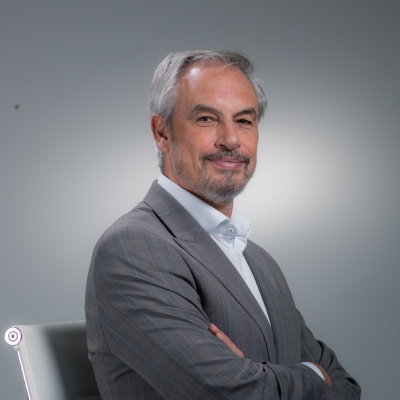

Home > Knowledge center > Choose sustainable palm kernel oil!

Specialist:
Leo Verboeket
Date:
July 2023
Tags:
The Sirius Effect:
Palm oil is a hot topic nowadays, on which there is a lot of uncertainty. Sirius International consciously opts for sustainable palm kernel oil, which is RSPO certified. Sirius director Leo Verboeket and RSPO's deputy director Ruben Brunsveld explain why. “The palm oil and palm kernel oil we use are the most sustainable vegetable oils especially in terms of efficient land and water use.”
"Choose sustainable palm kernel oil! "
.jpg)
As a distributor of environmentally friendly chemicals, it is only logical for Sirius to opt for sustainable palm oil, says director Leo Verboeket. “If you want to replace petrochemical raw materials with organic ones, then vegetable oils are the best option, because they are very similar in chemical structure. Palm oil and palm kernel oil have the advantage that these oils are produced very efficiently. For Sirius, it is important that these oils are not only vegetable, but also sustainable. That is why we are consciously certified member of RSPO.”
93% sustainable palm oil in Europe
The RSPO (Roundtable on Sustainable Palm Oil) was established in 2004 to promote the production and use of sustainable palm oil. Companies may only use the RSPO quality mark if they meet a number of ecological and social criteria, such as preventing deforestation, combating child labor and ensuring good working conditions. Independent agencies check whether companies meet these stringent criteria. The RSPO has grown strongly over the past two decades. In total, 19% of all palm oil produced globally is now certified by RSPO. “A fifth may not seem like much, but palm oil production has risen sharply in recent years, so in absolute terms we have experienced strong growth,” says Ruben Brunsveld.
In 2008, 125.000 hectares of land were certified by RSPO in 3 different countries, in 2023 that has grown to 4.5 million hectares of land in 21 different countries.” As far as the use of sustainable palm oil is concerned, Europe is even doing extremely well. There, 93% of all palm oil used for food, feed and oleochemicals is RSPO certified. This makes Europe a major consumer of sustainable palm oil, with 46% of all RSPO-certified palm oil going there.
No improvement due to palm oil-free products
Unfortunately, there are still many misconceptions about the sustainability of palm oil. Various organizations and companies are calling for less palm oil to be used to combat deforestation. Various palm oil-free products can be found in supermarkets. That reinforces the confusion, Brunsveld notes. “It's not about the product itself, it's about how you produce it. The RSPO is not pro-palm oil, but what matters to us is that when you use palm oil, you choose sustainable palm oil. It is also a misconception that palm oil-free products are more sustainable than products with palm oil. In that case you have to switch to other types of vegetable oils, which require four to ten times as much soil and therefore also far more water. Moreover, there will not be less palm oil produced if we stop using palm oil in Europe. Then the market will only shift outside Europe, where the standard in terms of sustainability is much lower. As a result, the rainforest and working conditions will only get worse, instead of better. Europe must therefore continue to use palm oil so that producers have a reason to produce sustainably”.
Improve visibility
While 93% of all palm oil in Europe is already RSPO certified, few consumer products can be found with an RSPO quality mark. “Unlike coffee, for example, palm oil is just one of many ingredients in a product. Due to the limited space on the packaging, it is logical that producers often do not choose to display our quality mark,” explains Brunsveld. Still, he thinks it's important to improve visibility. “We want to bring out a fair and balanced story. For example, consumers need to know how important palm oil is for poverty reduction in producing countries. That will help to enhance the reputation of palm oil. If consumers demand more sustainable palm oil, production will automatically increase.” Brunsveld therefore calls on companies to share their story about palm oil more with their customers. “It would help if they started using the quality mark more.”
Double use
As a certified member of RSPO, Sirius fully supports their vision. “We can also use other types of vegetable oil, but this is more sustainable and better for developing countries. At the same time, we are also working on alternatives, such as the use of palm oil from residual flows of food and cosmetics. In this way, sustainable palm oil can even be used twice,” says Verboeket.
Questions?
How do you view the use of palm oil? We would be happy to discuss this with you. If you would like to discuss this further please feel free to contact Ruben Brunsveld (ruben.brunsveld@rspo.org) or Leo Verboeket (Leo.verboeket@siriusint.com)
© Copyright Sirius International Detergents BV | Sirius International Water Treatment BV
Other blogs
Blog
Cosmetics
Blog
Briteframe AQn
Blog
Platform for innovative raw materials
Blog
BritePro non-GMO probiotics
Blog
100% bio Phenols
Blog
Water treatment
Blog
Circular Surfactants
Blog
EU green deal
Blog
Life Cycle Assessment
Blog
Strong surfactants
Blog
100% bio Mild surfactants
Blog
100% bio Ethoxybrite PEG
Design: Inzpire Design & Communicatie | Development: Haagen Web & App